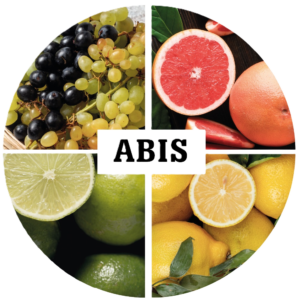Beers Organic, conventional hops and derogations: let's take stock

Since not all hops are organically grown AND availability is generally lower than required, a derogation system has been put in place to allow brewers to continue to produce their beers, with their recipes and the label Organic, even though the hops are not (Organic). But...
What the law says
Article 25 provides the framework
Authorisation by Member States of non-organic agricultural ingredients in processed organic foodstuffs
1. If necessary to ensure access to certain agricultural ingredients and where such ingredients are not available in sufficient quantities in organic form, a Member State may, at the request of an operator, provisionally authorise the use of non-organic agricultural ingredients for the production of processed organic foodstuffs on its territory for a period of up to six months. This authorisation shall apply to all operators in that Member State.
2. The Member State concerned shall immediately notify the Commission and the other Member States of any authorisation granted for its territory in accordance with paragraph 1, by means of a computerised system, made available by the Commission, for the exchange of documents and information.
3. The Member State concerned may extend the authorisation provided for in paragraph 1 for a maximum of two periods of six months each, provided that no other Member State has raised an objection by indicating, by means of the system referred to in paragraph 2, that these ingredients are available in sufficient quantity in organic form.
4. A control authority or a control body recognised in accordance with Article 46(1) may grant, for a maximum of six months, a provisional authorisation, within the meaning of paragraph 1 of this Article, to third-country operators who apply for such an authorisation and who are subject to controls by that control authority or control body, provided that the conditions laid down in that paragraph are met in the third country concerned. The authorisation may be extended for a maximum of two periods of six months each.
5. If, after two extensions of a provisional authorisation, a Member State considers, on the basis of objective information, that the availability of these ingredients in organic form is still insufficient to meet the qualitative and quantitative needs of operators, it may submit an application to the Commission in accordance with Article 24(7).
Article 24(7).
Where a Member State considers that a product or substance should be added to or withdrawn from the lists of authorised products and substances referred to in paragraphs 1 and 2, or that the specifications for use referred to in the production rules should be amended, it shall ensure that a dossier setting out the reasons for such addition, withdrawal or other amendments is officially forwarded to the Commission and to the other Member States and is made public, subject to compliance with Union and national legislation on data protection.

Sources:
Regulation (EU) 2018/848 of the European Parliament and of the Council of 30 May 2018 on organic production and labelling of organic products and repealing Council Regulation (EC) No 834/2007: https://eur-lex.europa.eu/legal-content/FR/TXT/?uri=CELEX%3A32018R0848#d1e4074-1-1
What the market says
Retailers specialising in "products Organic" are increasingly demanding that all the ingredients in the beers they sell be certified Organic.
More and more breweries at Organicare also preferring to source 100% Organicdespite the difficulties in sourcing and the limited choice of varieties.
And understandably so: as a consumer, when you choose a product with the Organic label, you appreciate that it is indeed so. OrganicNot only from the point of view of the law (tolerance of 5%, if a derogation is obtained, of non- Organic ingredients in labelled products), but also in its composition.
The availability of certified hops Organicon the market is gradually changing. The area under cultivation is increasing, the varieties available are multiplying. Within 3 years, supply should catch up with demand for the most commonly used varieties. This is encouraging!




